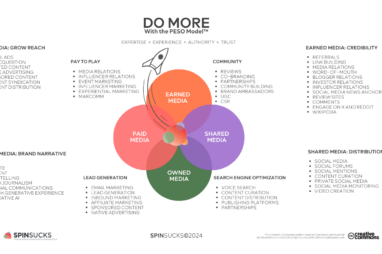The fashioning of mental health
and the responsibility of the social media influencer

About the author
Richard McElwee is Head of Communications and Legal Counsel at Rugby Players Ireland. He wrote this article as part of a CIPR Professional PR Diploma assignment studying with PR Academy.

There have been times in my life where I didn’t like who I was. As the low points began to stack up I remember breaking down in front of my family and some of my closest friends as I sought to put some sense on my foul mood and accompanying actions. I was sorry for how I had treated them.
In truth, I didn’t need a clinical diagnosis; I just knew I had to act. I was relieved that I had made it that far in the first place. Many before me, and since, did not.
Feeling as though I was on the cusp of depression was not something I wanted to engage with anyone on. I wasn’t prepared to wear it proudly across my chest and tell the world. Nobody talked about it, and I wasn’t going to be the one to start. Yet as I began to grow accustomed to the peaks and troughs of the battle, many of those around me chose otherwise. Celebrities spoke out, global brands initiated campaigns and ‘sadfishing’ on social media became commonplace.
It doesn’t stop there. Last year, the musician Ava Max released a chart-topping single that glamorised a girl who was ‘sweet but a psycho, at night she’s screamin’ “I’m-ma-ma-ma out of my mind.”’ It was a catchy number and one that I found myself humming along to, before a moment of awareness made sense of the words at play. Anyone who has been called a psycho – clinically or not – can tell you that it certainly isn’t sweet.
It would appear that talking about mental health is trendy these days. Sure, there’s a terrific upside to it all – the media is a powerful platform to educate viewers and by speaking about it, mental illnesses have become less taboo. But has Joe Bloggs really changed his view on mental illness or are these people and organisations merely capitalising on a trend, trading on people’s suffering, and hoping to make a quick buck in the process?
Despite the proliferation of mental health content in the media, research carried out by iReach as part of their Consumer Decisions Omnibus in Q4 of 2018 demonstrates that 83% of those surveyed in Ireland believe that mental health still has stigma attached to it. Furthermore, 49% don’t think that mental health is a topic that can be talked about openly in Irish society. Are the Irish people seeing through the corporate veil?
I have had my own conflicting opinions about various voices coming out with mental-health themed issues.
Undoubtedly there are many with impactful stories to tell, but the cynic within is a little more sceptical – especially when several individuals appear to have also used it as a foundation to ignite careers as influencers. Or, worse still, those without a diagnosis piggy-back on the trend, posting with impunity and without thinking of the consequences.
Anxiety is not a t-shirt. Depression is not a necklace. It’s part of an identity – although for many it is an unwanted noose around their neck. While I don’t suggest that an individual seek to live out their life in eternal gloom, posting a health-conscious message juxtaposed with one that endorses a fine Irish whiskey demonstrates a lack of both awareness and responsibility.
Representation
Numerous organisations who work in the mental health sector have made great strides over the years in raising awareness about the issues that people face. Schools and clubs have also played their part in educating young people. The original barriers to speaking about mental health have slowly been eroded, but its consequent romanticising is a worrying development.
Ultimately, many are drawn to the tragic stories of those who have suffered and suffer from a mental illness. One need only look to their local cinema to see the results. On its opening weekend in the United States, Joker hauled in $93.5 – the highest debut for a film released in October in cinematic history.
Our sympathies for Arthur Fleck are pronounced as he suffers a series of setbacks in the origin story for one of the most celebrated comic villains of all time. Over the course of two hours, we experience his depressive tendencies, his insecurities, his delusions, his apparent hallucinations and also learn of a history of child abuse, including head trauma that caused a neurological injury.
Failed by the system and those around him, the viewer can’t help but feel for Fleck. Even as he descends into violence, the audience roots for him and revels in his new persona as he dances and swaggers down the stairwell he previously scaled as a broken man. A downtrodden loner who becomes a symbol for the masses.
Immediately, certain audiences will misinterpret the condition. Those with an inherently negative view of mental illness will change their tune and might perceive a serious illness to be something of an interesting personality quirk. Marking someone out as special, especially where impressionable youths or susceptible individuals who might identify with Fleck’s emotions are concerned, is dangerous territory.
Naturally, the same principle applies across other platforms. In a survey carried out by mentalline.com in 2013, 34% of the young people surveyed admitted to lying about having a mental illness in the past, citing it as ‘fashionable’ and something that made them feel ‘unique’. According to the online therapy service, many of the participants said that celebrities who had spoken about their problems had been a source of influence.
In September, Justin Bieber became the latest celebrity to share his personal issues across Social Media platforms. He told his 119 million Instagram followers: “It’s hard to get out of bed in the morning when you are overwhelmed with your life.” He added that although he had lots of “money, clothes, cars and awards” he still felt unfulfilled. Bieber faced an inevitable backlash with one commentator suggesting he “stop playing the sympathy card to be in the news and to stay relevant.”
While the statistics suggest high-profile characters will undoubtedly encounter mental health issues (they are people too), it’s hard to dispute that mental illness has become fashionable when some of the biggest cultural icons on the planet are talking about it.
What is of greater concern to Digital Awareness UK (DAUK) however, is that while the likes of Bieber will have a multitude of support resources at their disposal, young people with genuine issues who legitimately seek support online ultimately court further damage to their self-esteem. Many are facing unfair criticism that they too are seeking self-serving attention in the form of shares, retweets and followers.
Social media pivots on attention. Although their icons might be dealing with serious issues, many of their fans will struggle to appreciate that reality.
Instead they see the 3.8 million people who like and share the post. They see that if they leverage mental illness they too will be ‘seen,’ just as the protagonist in Joker realises as he carries out a spate of horrific executions.
Opportunity
More and more, high-profile figures are setting the agenda. Given her astonishing reach of 148 million, a singular post by Kylie Jenner will cost you $1.266 million. While Jenner sits atop the pile, Justin Bieber also makes it into the Top 10 list with the Canadian singer demanding $722,000 for a sponsored posting. In total, there were 26 million brand sponsored influencer posts on Instagram in 2018.
To be able to influence and ultimately succeed, brands know they have to reflect the culture that is being determined by these individuals. Through the modern influencer, brands have also figured out that appealing to our emotions and morality, rather than just our desires, can be just as profitable. Capitalising on a person’s feelings may be exploitative, but it is also a lucrative business.
Efforts to reach audiences in such ways can be especially seen throughout the month of October, otherwise known as Mental Health Awareness Month. Opportunity knocks, just as it does when debates on LGBTQ+ rights rage or the fight against racism takes another turn. Various brands strategically use the circumstances around them to meet their own needs. Controversy is synonymous with marketing; and potentially free marketing at that. Therefore, the focus regularly shifts away from what they purport to be advocating.
Yet there are undoubted benefits associated with corporate wellness. According to Deloitte, who carried out extensive research into workplace mental health and wellbeing in 2017, “when employees feel their work is meaningful and they are valued and supported, they tend to have higher wellbeing levels, be more committed to the organisation’s goals and perform better.” Unfortunately, this is not always the case. Every year, companies are left to count the cost of ill-health and stress of their workforce.
Absenteeism, presenteeism and turnover costs to replace staff who leave their job due to a mental health problem can have massive ramifications for any organisation. When the UK’s Centre for Mental Health explored the area in 2007, it was estimated that the cost of mental health to UK employers was £26 billion (1,035 per employee). In research later carried out by the Health and Safety Executive in the UK in 2016, there were 488,000 reported cases of work-related stress, anxiety or depression. In other words, only 2 in 5 employees were deemed to be working at peak performance.
Responsibility
Having the ability to reach a lot of people, as an influencer or brand, brings with it plenty of responsibility. Most use it to create a positive impact on the lives of those who absorb it. Others may set out on the same path but soon become fixated on the numbers.
In 2019, Burger King partnered with Mental Health America “to address the needs of those living with mental illness and to promote the overall mental health of all Americans”. A nice sentiment and, one would assume, made in good faith.
An array of meal options were launched, including the DGAF (Don’t Give a F***) Meal and the Yaaas Meal as consumers were encouraged to embrace how they feel through a burger. Upon its unveiling, the concept was widely praised. However, it was also blasted in equal measure – understandably, not many could reconcile fast-food with self-care, some pointed out that employees of the chain earn below the federal poverty line, while others sensed it was merely a playful dig at the McDonald’s Happy Meal and designed to grab headlines.
Either way, the communications team at Burger King suddenly became very busy. The #FeelYourWay conversation comprised of memes, podcasts and vlogs. Suddenly, a relatively underperforming Twitter handle became hot property. The message was being skewed along the way, but did Burger King really care? It’s amazing how free advertising can quell concerns.
It also raises another point. Even if Burger King’s prerogative was not wholly sincere, it demonstrated that people were willing to engage on the topic of mental health. Indeed, some would argue that mental health awareness can benefit from less sterile communication of the kind instigated by #FeelYourWay, however flawed it may be.
The real challenge (and opportunity) lies in whether brands are committed to going beyond igniting the conversation.
Can they approach it with real empathy, depth and emotion? Can they sustain a meaningful commitment to the issues at play?
But one would surmise, just as the followers of Kylie Jenner and Justin Bieber can be distracted from the true sentiment of a post, that they too are being driven by the numbers.


